Once upon a time, if you said “biopic” in Nollywood, many people would’ve shrugged. Audiences wanted fast-paced drama, romantic triangles, or comedy skits with a sprinkle of supernatural flair. But in recent years, the tide has turned. Now, true stories are commanding attention. From warriors and kings to musicians and political legends, biographical films are becoming the soul of Nigeria’s evolving cinematic identity.
From Sango to Funmilayo Ransome-Kuti, Ayinla to House of Gaa, Nigerian filmmakers are diving deep into the past and audiences are loving it.
What’s Fueling This Biopic Boom?
The rise of biopics isn’t random. It’s the result of five key forces:
1. A hunger for authenticity:
Audiences are tired of fiction that feels disconnected. They want stories with substance. The kind that reflects who we are, where we come from, and what we’ve survived.
2. Streaming platforms are watching:
Netflix, Showmax, and Amazon Prime are all hungry for authentic African content. Biopics are gold — rich in culture, emotion, and export value.
3. Cultural pride is surging:
From music to fashion, Gen Z and millennials are reclaiming Nigerian identity. Biopics honour the people who paved the way.
4. Filmmakers want legacy work:
For many directors and producers, biopics are career milestones. A chance to tell stories that matter.
5. Controversy equals conversation:
Whether it’s casting, historical accuracy or political implications, biopics always get people talking. And in Nollywood, buzz is everything.
The Biopics Leading the Revolution
Let’s take a look at some of the titles that have boldly carried the torch in this new wave of fact-based storytelling:
Funmilayo Ransome-Kuti (2024)
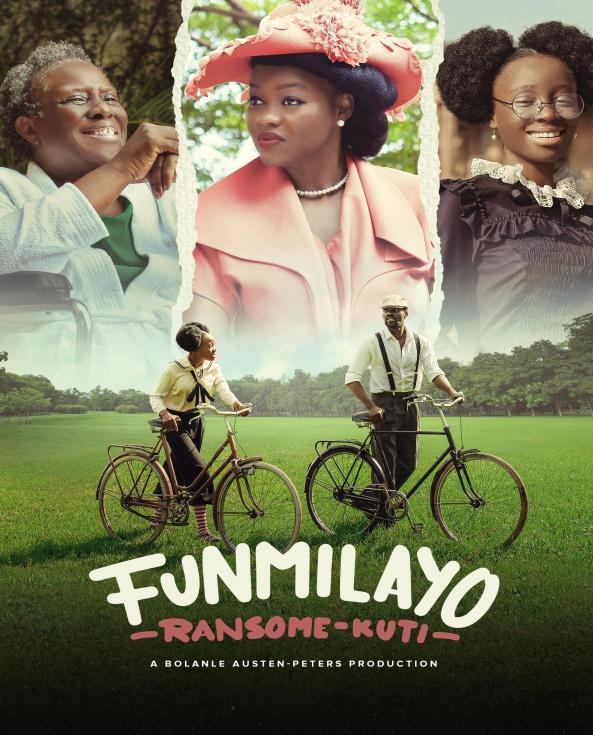 Directed by Bolanle Austen-Peters
Directed by Bolanle Austen-Peters
This landmark film tells the story of Nigeria’s first female political activist, a woman who challenged colonialism, patriarchal traditions, and systemic oppression — all while raising the legendary Fela Kuti. Featuring powerhouse performances from Kehinde Bankole and Joke Silva, the movie isn’t just a tribute — it’s a reclamation. With its strong feminist themes and period-perfect costumes, Funmilayo Ransome-Kuti raised the bar for historical storytelling in Nollywood.
Wole Soyinka – Eni Ogun (2024)
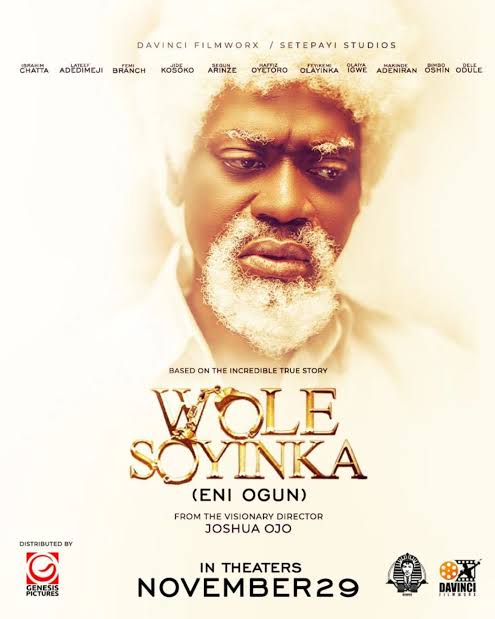 It is inspired by the Nobel Laureate’s own life and writings.
It is inspired by the Nobel Laureate’s own life and writings.
A biopic of Wole Soyinka is long overdue, and Eni Ogun (“The War Person”) captures the early years of the literary icon and activist. This is not just about a writer. It’s about a rebel, a thinker, and a man who put country before comfort. The film offers an emotional, intellectual portrayal of a man whose pen has fought more battles than most guns.
House of Ga’a (2024)
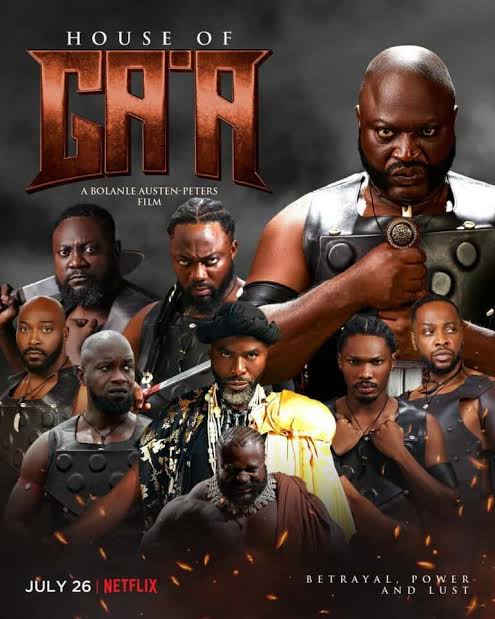 This culturally layered biopic is inspired by the story of Bashorun Gaa, a feared 18th-century power broker in the Oyo Empire, whose legendary cruelty and political manipulation shaped Yoruba history. A cinematic deep-dive into tyranny, justice, and betrayal, House of Gaa blends fact and folklore — and reignites debates about power without restraint.
This culturally layered biopic is inspired by the story of Bashorun Gaa, a feared 18th-century power broker in the Oyo Empire, whose legendary cruelty and political manipulation shaped Yoruba history. A cinematic deep-dive into tyranny, justice, and betrayal, House of Gaa blends fact and folklore — and reignites debates about power without restraint.
Lisabi (2024)
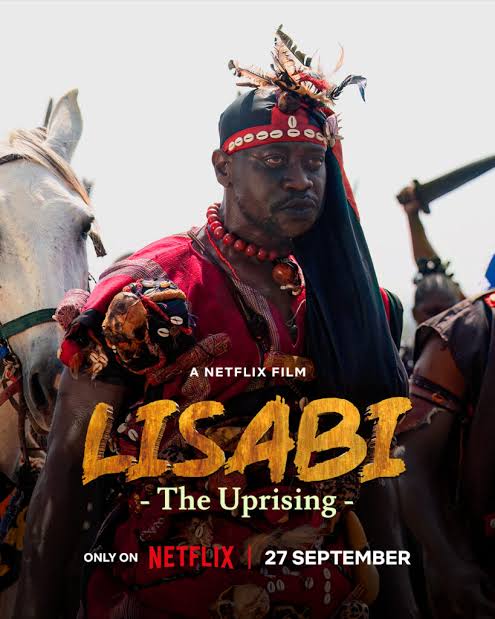 Produced by Mainframe Productions.
Produced by Mainframe Productions.
The story of Lisabi Agbongbo-Akala, the Egba folk hero who led a revolt against oppression, is a tale of grassroots rebellion. The film touches on community justice, betrayal, and sacrifice. These themes still resonate deeply in Nigeria today. Shot with historical flair, Lisabi is both folklore and resistance wrapped in one.
Jagaban: Last Man Standing (2023)
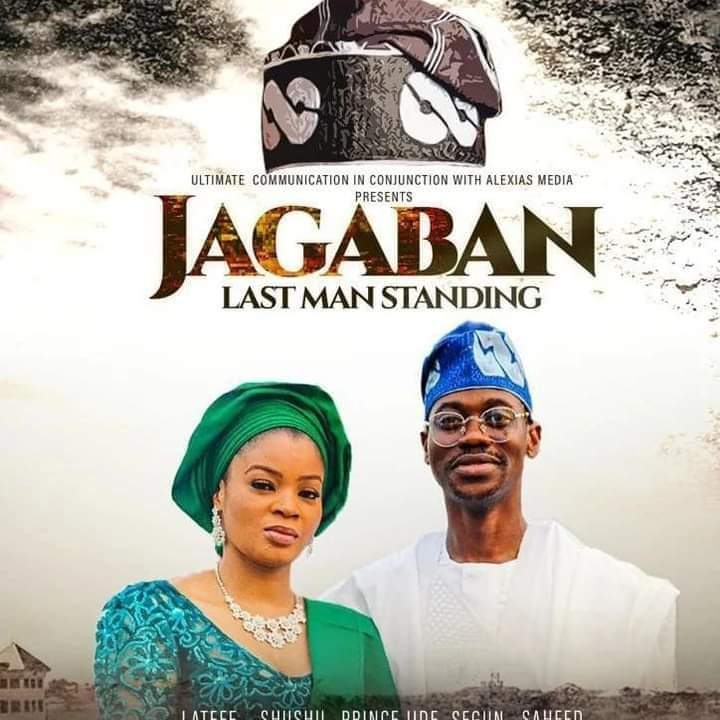 Directed by Tunde Olaoye and produced by Seun Oloketuyi, this biopic follows the political journey of Bola Ahmed Tinubu, focusing on his time as Governor of Lagos State and his influence in Nigerian politics. Played by Lateef Adedimeji, the film explores key controversies around his academic records, internal party battles, and governance strategies. Last Man Standing is firmly based on Tinubu’s legacy and role as a political kingmaker in modern Nigeria.
Directed by Tunde Olaoye and produced by Seun Oloketuyi, this biopic follows the political journey of Bola Ahmed Tinubu, focusing on his time as Governor of Lagos State and his influence in Nigerian politics. Played by Lateef Adedimeji, the film explores key controversies around his academic records, internal party battles, and governance strategies. Last Man Standing is firmly based on Tinubu’s legacy and role as a political kingmaker in modern Nigeria.
Ayinla (2021)
 Directed by Tunde Kelani
Directed by Tunde Kelani
Set in the vibrant 1970s, Ayinla chronicles the life and untimely death of Apala music legend Ayinla Omowura. What makes this film unforgettable is its rich blend of language, rhythm, and tragedy. Lateef Adedimeji’s performance was a career-defining moment, and the film’s cultural texture reminded Nigerians of a musical heritage often overshadowed by Afrobeats. Tunde Kelani delivered not just nostalgia — but national pride.
Badamasi: Portrait of a General (2021)
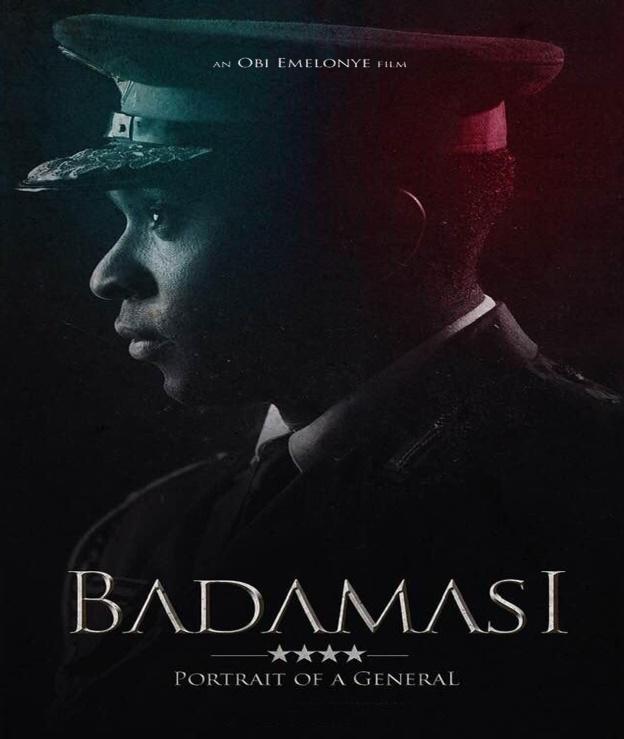 Directed by Obi Emelonye
Directed by Obi Emelonye
A politically charged narrative centered on General Ibrahim Babangida, one of Nigeria’s most controversial former heads of state. From coups to annulled elections, Badamasi explores a complex figure and dares to humanize him — a move that earned both praise and backlash. It marked Nollywood’s entry into military biopics and opened the door for bolder political storytelling.
Amina (2021)
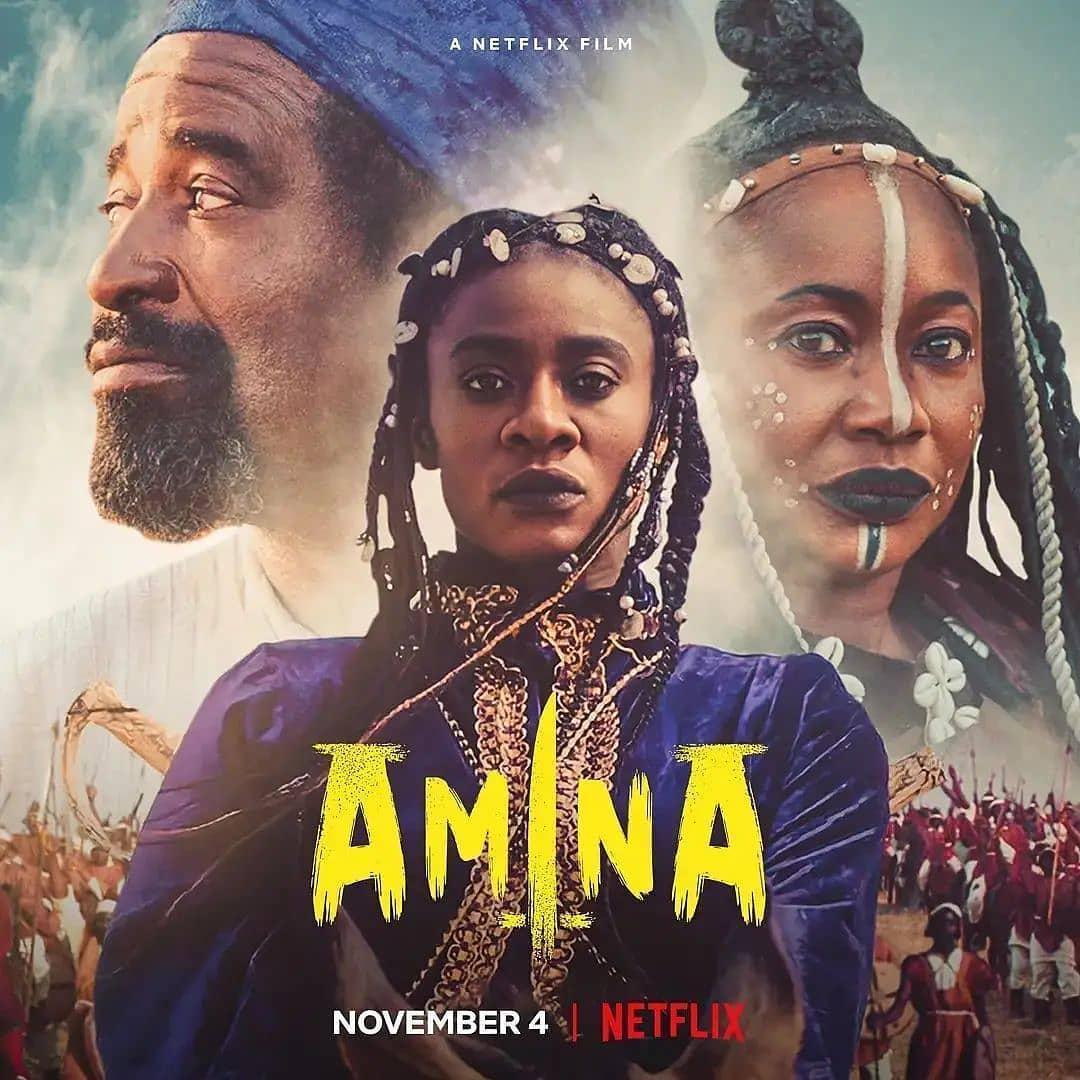 Directed by Izu Ojukwu
Directed by Izu Ojukwu
This Netflix-distributed film reimagines the life of Queen Amina of Zazzau, a 16th-century warrior who led armies into battle and ruled over northern Nigeria with an iron fist. While debates about historical accuracy surfaced, there’s no denying Amina’s visual ambition and scale. It served as a reminder that Nigerian history is rich with female powerhouses, many of whom deserve more cinematic glory.
The Herbert Macaulay Affair (2019)
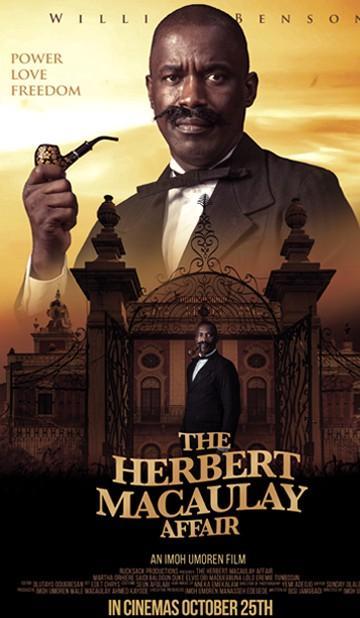 Directed by Imoh Umoren
Directed by Imoh Umoren
One of the earliest films in this modern biopic resurgence. It tells the story of Herbert Macaulay, the radical who shook the foundations of colonial Lagos. Set against the backdrop of early 20th-century politics, the film spotlights Nigeria’s first wave of nationalist resistance and connects past activism to present struggles.
The Stubborn Grasshopper (2001)
 Directed by Simisola Opeoluwa, The Stubborn Grasshopper is a bold political allegory believed to mirror the reign of General Sani Abacha, though the character in the film is named General Alba. Released at a time when political storytelling was still a high-risk venture in Nollywood, the film cleverly uses fictional framing to explore real historical events — including political assassinations, annulled elections, and the climate of fear that gripped Nigeria in the 1990s.
Directed by Simisola Opeoluwa, The Stubborn Grasshopper is a bold political allegory believed to mirror the reign of General Sani Abacha, though the character in the film is named General Alba. Released at a time when political storytelling was still a high-risk venture in Nollywood, the film cleverly uses fictional framing to explore real historical events — including political assassinations, annulled elections, and the climate of fear that gripped Nigeria in the 1990s.
Told in two parts, the film combines melodrama with biting political commentary, and is widely regarded as one of the earliest Nollywood attempts to critique military dictatorship on screen. While not a biopic in the traditional sense, it functions as a thinly veiled depiction of Abacha’s regime — and is considered a landmark in Nigerian political cinema.
Efunsetan Aniwura (multiple adaptations)
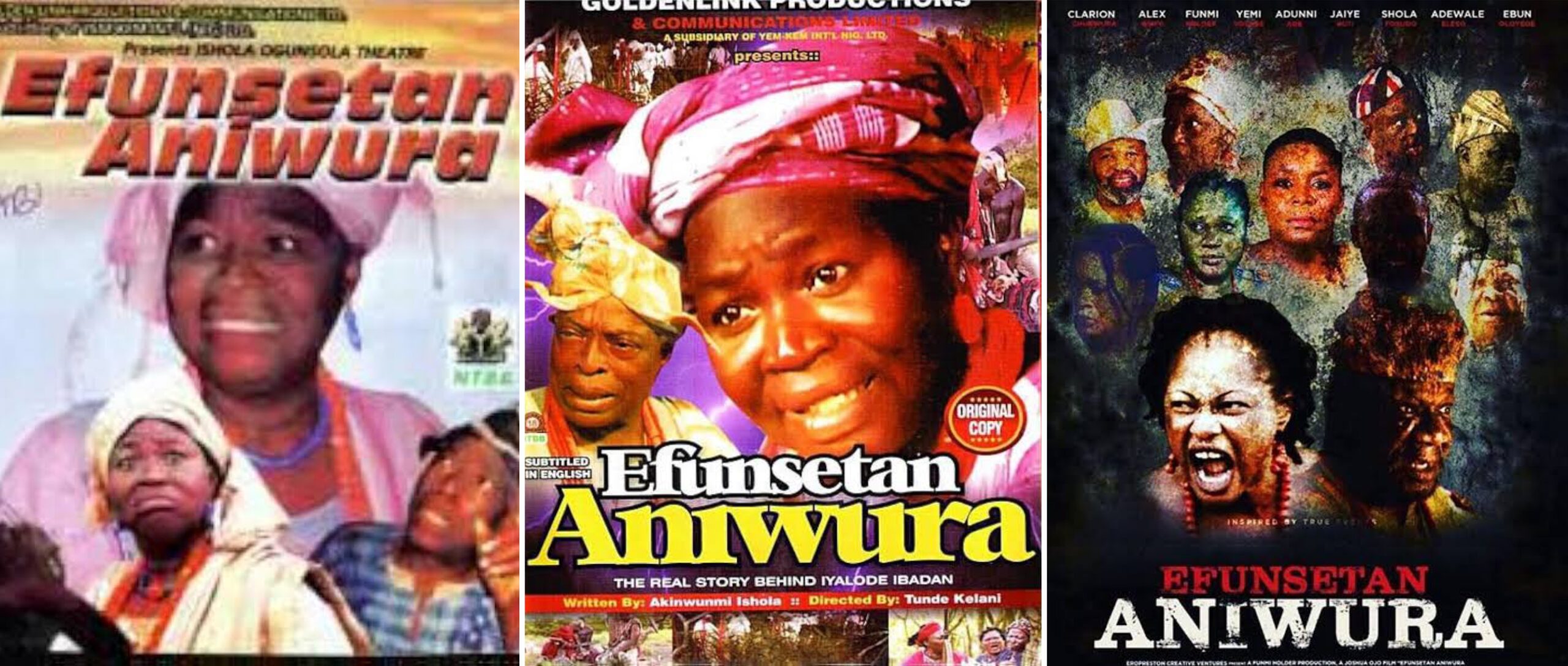 The Iyalode of Ibadan, Efunsetan Aniwura, was one of the wealthiest and most feared women of her time. Her story — told through several films, especially in Yoruba cinema — captures the pain of power, loss, and legacy. She’s often portrayed as a symbol of strength, mystery, and misunderstood feminism. Nollywood’s continued interest in her is a testament to how layered and powerful her story remains.
The Iyalode of Ibadan, Efunsetan Aniwura, was one of the wealthiest and most feared women of her time. Her story — told through several films, especially in Yoruba cinema — captures the pain of power, loss, and legacy. She’s often portrayed as a symbol of strength, mystery, and misunderstood feminism. Nollywood’s continued interest in her is a testament to how layered and powerful her story remains.
Sango
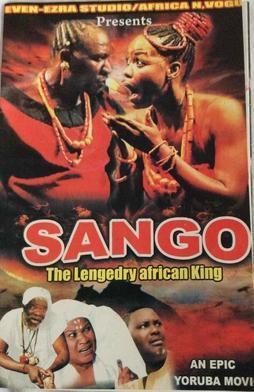 Directed by Obafemi Lasode
Directed by Obafemi Lasode
This acclaimed biopic chronicles the life of Sango, Alaafin of 15th-century Oyo, who became a deity worshipped in Yoruba religion. Played by Wale Adebayo, the film is a blend of mysticism, politics, and culture.
It was screened at the 1988 New York African Film Festival and 1989 Pan African Film Festival, solidifying its place in African cinema history.
Awujale (TBA)
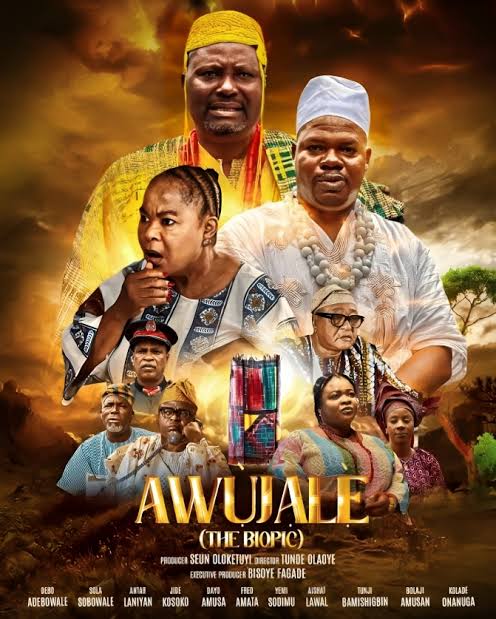 A biopic on Oba Sikiru Kayode Adetona Ogbagaba II, the Awujale of Ijebu Kingdom and one of Nigeria’s longest-reigning monarchs.
A biopic on Oba Sikiru Kayode Adetona Ogbagaba II, the Awujale of Ijebu Kingdom and one of Nigeria’s longest-reigning monarchs.
The film stars Debo “Mr. Macaroni” Adedayo, Sola Sobowale, and Antar Laniyan, and is directed by Tunde Olaoye. Produced by Seun Oloketuyi, founder of the Best of Nollywood Awards, it’s set to offer a rare glimpse into royalty, reform, and resilience.
A release date is yet to be announced.
Biopics: From Fringe to Front Row
For decades, Nollywood shied away from biopics. Telling real-life stories requires a delicate balance — historical accuracy, emotional depth, and often, family or political approval. Add that to budget constraints and limited archives, and it’s easy to see why producers often opted for fiction.
But that was then.
Now, audiences are hungry for more than just entertainment. They want meaning. They want depth. They want to understand the people who shaped their history and culture — especially those whose names were buried in footnotes or reduced to headlines.
But Let’s Be Honest: Biopics Are Not Easy
Behind the scenes, biopics come with huge pressure:
• Research and accuracy take time and money.
• Family approvals can be tricky — one wrong portrayal, and you’re trending for the wrong reasons.
• Balancing drama and truth is hard. Go too soft, and it’s boring. Exaggerate too much, and it’s disrespectful.
Yet, these challenges are worth it — because when done right, a biopic doesn’t just entertain. It honors. It educates. It echoes.
Conclusion: Our Stories, Our Cinema
The rise of biopics in Nollywood isn’t just a phase. It’s a statement — that our stories matter, that our past deserves a spotlight, and that our legends are worth more than textbooks.
As filmmakers continue to dig into Nigeria’s historical goldmine, one thing is certain:
The most powerful stories are the ones that already happened.
And finally, Nollywood is telling them — on our own terms.













Leave a comment